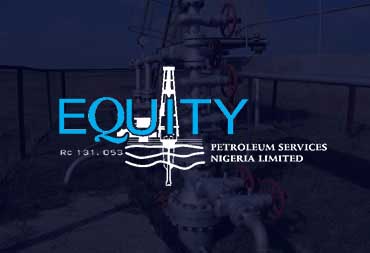International oil companies have started reporting their 2020 results, and three of those operating in Nigeria posted record losses, a development that poses further threats to major projects in the country.
Some multibillion-dollar projects in the country have not been sanctioned by the IOCs several years after they were announced.
The slump in oil prices last year as a result of the coronavirus pandemic forced many companies, including the IOCs, to slash their capital budgets and suspend some projects.
ExxonMobil last week posted its first annual loss in 40 years as a public company as the COVID-19 pandemic hammered energy prices and it reduced the value of its shale gas properties by more than $20bn in the fourth quarter.
The oil giant reported a net annual loss of $22.44bn for 2020, compared with a full-year profit of $14.34bn in 2019. It reported its biggest-ever quarterly loss of $1.1bn in the second quarter and confirmed plans to make deeper spending cuts.
Exxon posted four straight quarters of losses in 2020 and cut up to 15 per cent of its workforce and delayed oil and gas projects after accepting oil prices could remain below $60 a barrel for years.
The company expects 2021 capital expenditures to decline 11 to 25 per cent from 2020 levels as the company focuses on projects with lower breakeven amid an uncertain price environment, company executives said during fourth-quarter earnings call on Tuesday, according to S&P Global Platts.
Royal Dutch Shell reported last Thursday a loss of $21.68bn for the year 2020 as COVID-19, compared with a profit of $15.84bn a year before. It said its cash capital expenditure was reduced to $18bn in 2020 from $24bn in 2019.
Last year, Shell cut its dividend for the first time since World War II following a dramatic slide in oil prices amid the coronavirus crisis.
It said in September 2020 that it planned to cut 7,000 to 9,000 jobs, saying the cuts would be implemented by 2022 and included 1,500 people who were taking voluntary redundancy.
Chevron Corporation had earlier reported its first annual loss since 2016 as the global pandemic continued to weigh on the oil and gas industry and cloud hopes for renewed economic growth in 2021.
Chevron posted a loss of $665m in the fourth quarter of last year. For all of 2020, the loss totaled $5.5bn, compared to nearly $3bn in profit reported in 2019.
Chevron Nigeria Limited had said in October 2020 that it would slash its workforce by 25 per cent as it was reviewing its manpower requirements in the light of the changing business environment.
The oil major said it would continue to evaluate opportunities to improve capital efficiency and reduce operating costs.
Before the COVID-19 pandemic, industry experts had said the regulatory and security challenges in the country had put a damper on the IOCs’ appetite to take final investment decisions on some major projects.
Last year’s collapse in oil prices and demand caused by the coronavirus pandemic and the price war between Saudi Arabia and Russia compounded the challenges facing the projects.
The projects that have not reached FID include Shell’s $9.7bn Bonga South-West/Aparo, which would add 143,274 barrels per day in extra crude production capacity at its peak flow. It has the potential to boost Nigeria’s daily production by nearly 10 per cent.
Other projects without FID are ExxonMobil’s $6.2bn Bosi (126,784 bpd), Chevron’s $8.2bn Nsiko (95,685 bpd), ExxonMobil’s $8.2bn Owowo West (138,301 bpd), ExxonMobil’s $6.1bn Uge-Orso (99,532bpd) and Nigerian Agip Exploration Limited’s $9.2bn Zabazaba (146,739 bpd).
The Lagos Chamber of Commerce and Industry said in January that despite having the largest oil reserves in Africa, Nigeria only received four per cent ($3bn) of $75bn invested in Africa between 2015and 2019.
“This underscores the need to create a competitive environment to attract investment to the oil and gas sector,” its Director-General, Dr Muda Yusuf, said.
He noted that the fundamental shift in global energy markets, driven by advances in unlocking unconventional petroleum resources and increasing traction for cleaner energy sources, had resulted in a global oversupply of crude oil, putting pressure on prices.
He said this had been further worsened by the COVID-19 pandemic, potentially putting at risk the viability of ongoing and future projects and driving fierce competition for scarce investments around the world.
Source: Punch

